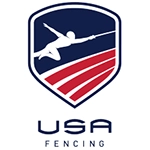 |
| Bill Huey |
The Supreme Court on Monday ruled against the NCAA in a landmark antitrust case that is the college-sports equivalent of the Citizens United ruling, which declared money is the equivalent of political speech and may not be restricted. Here are some likely implications for college sports:
- A tsunami of money will wash over college athletic programs, leaving the NCAA and its members to figure out what is for “educational benefits.” But they can’t do it in concert, because that would be anti-competitive. Antitrust is antitrust, whether it occurs at the national, regional, or local level.
- Lawsuits will dominate college athletics for the next 20 years.
- The rich will get richer, and colleges that pay the most will have the best teams.
- Student athletes will be making more than most professors.
- Compared to other students, college athletes will drive better (much better) cars, live in better housing, and eat better, as they do already.
- Parents will hire agents and other third parties to get the most competitive bids for their sons’ and daughters’ services.
- College athletics will eventually become contractual, with players signing one-year, two-year and three-year contracts.
- Unions will appear to represent college athletes.
- Television networks will have to pay much more for rights to keep up with rising revenues and costs.
- Smaller, weaker postseason bowl games will disappear. This will generate more lawsuits as teams vie for top bowl spots.
- Professional recruiting will be affected as well, with teams having to pay more to get athletes to leave their present lucrative contracts.
- Colleges and universities will have to become much more corporate in their thinking and approach to doing business, much in the same way that medicine has. Thus, the divide between the academic and business sides of higher education will become much greater.
What are the implications for communications? The last item on the list is probably the most significant for communications. Universities will need to staff up and hire top-shelf business communicators. Gone will be the lifer drones who inhabit university communication shops today, or else they will be working with the academic side. Turnover will be high, and pay will be stratospheric compared to today. To this end, athletic departments may have to contribute or else develop their own communications capability to the point where it can compete with the best of the NFL or MLB teams.
It’s going to be a rough and bumpy ride. Winners will be student athletes, their agents and families. Losers will be everybody else.
***
Bill Huey is president of Strategic Communications and the author of Carbon Man (Kindle, 2010).


 Even the most iconic sporting or ceremonial event can be deep-sixed by an overzealous member of the crowd, so crisis comms pros need to be prepared.
Even the most iconic sporting or ceremonial event can be deep-sixed by an overzealous member of the crowd, so crisis comms pros need to be prepared. The Super Bowl, with its massive audience and sky-high ad cost, creates intense pressure to deliver. But when they hit the mark, these ads can become cultural touchstones.
The Super Bowl, with its massive audience and sky-high ad cost, creates intense pressure to deliver. But when they hit the mark, these ads can become cultural touchstones. Teneo has hired Nick Greenslade, deputy sports editor at The Times and Sunday Times, as managing director for its strategy and communications unit in London.
Teneo has hired Nick Greenslade, deputy sports editor at The Times and Sunday Times, as managing director for its strategy and communications unit in London. Jon Schwartz, a former SVP, communications, marketing, digital & social for the Big Ten Conference, is signing up with Prosek Partners to launch a new sports business unit.
Jon Schwartz, a former SVP, communications, marketing, digital & social for the Big Ten Conference, is signing up with Prosek Partners to launch a new sports business unit. USA Fencing has retained Finn Partners ahead of the 2024 Paris Summer Olympics and Paralympics Games.
USA Fencing has retained Finn Partners ahead of the 2024 Paris Summer Olympics and Paralympics Games.


 Have a comment? Send it to
Have a comment? Send it to 
Jun. 23, 2021, by Joe Honick
Bill is always provocative, something missing from most commentators who just have opinions to get published. However, even as sharp an observer like him and the rest of the media are: what are the responsibilities of professional athletic leagues who use colleges and universities as their "farm clubs" without paying a dime, except in unusual circumstances? Why are they not called on to help pay for some of the costs the same as Major League Baseball does mostly with minor league teams? Will the lesser impact sports and athletes, like rowing, lacrosse, tennis, volley ball, etc., file for greater PR investment to market their stars who ask legitimately for consideration?
The mess of course could have been mitigated but never eliminated had the controllers of the NCAA given a damn a lot sooner. Academically, NCAA rules will or should demand that star athletes be prohibited from transferring to other schools who treat them as virtual prostitutes for financial reason...also require as part of the scholarships that all such athletes must finish their degree commitments or repapy the universities for their education agreement.
Of course, Bill has made the point clearly that "using" athletes for all these years has finally created what we like to call another "movement" that has no reverse gear. The hope is the kids get what they deserve and same for the NCAA and the pros.